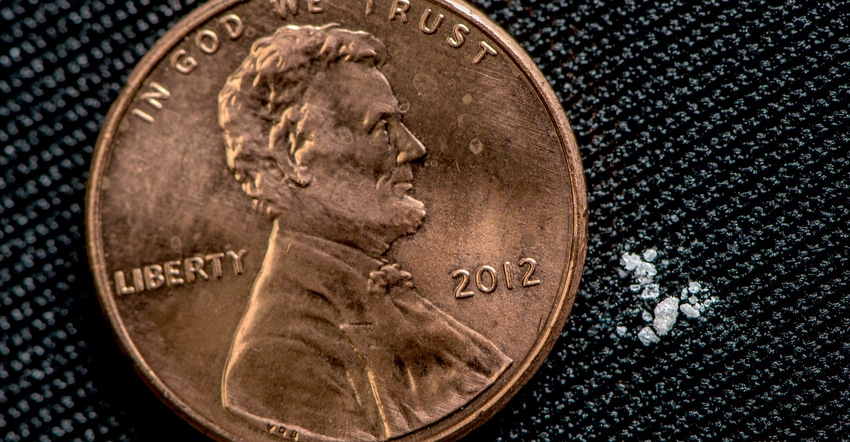June 20, 2022

Drug addiction is not an issue isolated to big cities. Rural areas are gaining their fair share of metropolitan-like problems, and the U.S. Drug Enforcement Administration wants to alert small town and rural areas of the concern. The worry is counterfeit pills that contain lethal doses of fentanyl.
In talking with Farm Progress, Justin King, special agent in charge of the DEA Omaha field division, says the problem is getting worse.
“We’ve seen a change,” he notes. “Back in the day, you had diverted pharmaceuticals from people getting product prescribed by a doctor. With people pill shopping, eventually drug traffickers found an opportunity to exploit the situation.”
Podcast: Drug Enforcement Administration issues a warning
He says counterfeit OxyContin pills and copies of other painkillers look very much like the real thing. But in an analysis of confiscated fakes, the DEA got a surprise.
“We’re seeing that 4 out of every 10 pills that we test has a lethal dose of fentanyl,” King warns. DEA is calling attention to the challenge with the One Pill Can Kill program.
Pills and addiction
Addiction to painkillers has been a growing problem in the last few years. And now counterfeit pills with potentially lethal doses of fentanyl increase concerns. Some farmers may question the risks in their community; however, King says drug traffickers are flooding the market. In 2022’s first quarter, DEA confiscated more counterfeit pills than it did through all of 2021.
King notes that drug use has evolved, and for many, it’s more “acceptable” to take a pill than inject an opioid like heroin. And drug traffickers have taken note and figured out how to access the market. And once addiction happens, it’s difficult to recover from.
“If you know somebody is an addicted person, we’re always encouraging them to seek treatment,” he says. “And you try everything you can, and we know the recidivism rate for people who are addicted to opioids is high. This is a hard drug to get off of.”
King says the best results happen when the addicted person has a support system around them, helping them seek treatment. “[Treatment] has got to be a holistic approach. It’s got to be family. With the person also working with their medical provider,” he explains.
Growing up in southwest Oklahoma in a town of 350 people, King knows that the problems of big cities eventually make their way to the country. “The world has changed; it’s so much more connected,” he says.
Drug traffickers may see opportunity in the country because law enforcement is spread across more territory. “There may not be as many assets that the government, state, local or even federal can put in the country. The drug traffickers really try to exploit that,” he adds.
For more information about the One Pill Can Kill program, visit dea.gov/onepill.
About the Author(s)
You May Also Like






